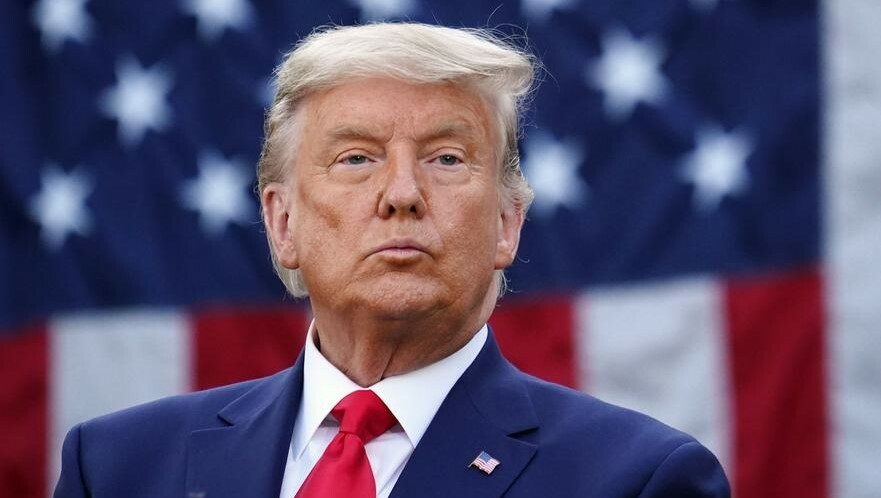Washington - (AFP) - From the United States to Brazil, via Israel, disinformation campaigns marked the elections that were organized in 2022, although many voters were not drawn into these tactics aimed at sowing doubt about democratic paths.
Fake news has swept Twitter, Facebook, TikTok and YouTube with edited images intended to manipulate voters as well as deepfake videos, an artificial intelligence technique that replaces one face with another. Various platforms are accused of failing to combat these threats.
Many American candidates have resorted to Donald Trump's anti-democratic tactics, such as assertions of electoral fraud without providing evidence. But contrary to the expectations of the Republicans, who were counting on a "red wave" in the mid-term elections, the majority of the candidates supported by the former president were severely defeated.
Mike Caulfield, a researcher at the Center for an Informed Public Opinion at the University of Washington, told AFP that Republican leaders "seem to have become convinced that the adoption of the conspiracy theory has led to poor choices of candidates, limited mobilization of voters, and sowing mistrust among them." and many other pests.
"Many people will now try to distance their supporters from conspiracy theories about electoral fraud," he added.
In Brazil, where the second round of the presidential elections witnessed a competition between the far-right President Jair Bolsonaro and the left-wing candidate Luiz Inacio Lula da Silva, the election campaign was replete with disinformation, as the outgoing president, like Donald Trump, denounced electoral fraud without presenting any evidence.
Lula eventually won, while opinion polls show that the majority of Brazilian voters still trust electronic voting. However, analysts warned that combating disinformation still requires vigorous efforts.
In Israel, too, the Likud Party, led by Benjamin Netanyahu, launched a "stop the fraud" campaign as soon as it announced new elections.
The party and its supporters have repeatedly emphasized these accusations to improve the chances of victory, according to analysts.
Ashiya Shatz of the anti-disinformation group "Fake Reporter" says, "Likud has promoted allegations that the polls are rigged and that the electoral commission in Israel is controlled by the 'deep state'," meaning that senior officials secretly control the levers of government.
Likud and its right-wing allies won the majority of seats in parliament, opening the door to a possible return to power for Netanyahu. Netanyahu did not object to the outcome of the vote.
Donald Trump's spectrum also hangs over politics in Hungary, where the former US president backed far-right Prime Minister Viktor Orban ahead of April's election, which was marred by massive disinformation.
A study by the Hungarian think tank "Political Capital" said that Viktor Orban Fidesz's party "has made maximum use of its control over the media to spread untrue or deceptive allegations and accusations against its opponents."
Ahead of the vote, Viktor Orban, a senior ally of Russian President Vladimir Putin, asserted without any evidence that his opponents had "made a deal with the Ukrainians" to provide them with weapons and aid if they won. Fidesz won a landslide victory.
The world in general is witnessing an increasing propensity for media misinformation regarding elections, which reduces public opinion's confidence in democratic institutions and may lead to chaos, as some may seek to manipulate the results.
In the Philippines, disinformation via social media reached "unprecedented" levels during the presidential elections in May, says Rachel Khan of the fact-checking network Tsik-F.
She expresses her regret that fact-checking the news "doesn't have much effect," noting that there is a "competency problem in the media. Even those who say they know how to detect media disinformation don't know that."
In Kenya, the two front-runners in the presidential elections, William Ruto and Raila Odinga, have been accused of hiring digital "fighters". False news began to spread about a year before the elections last August, especially "deep fake" videos.
Kenya's High Court confirmed William Ruto's election, but many Raila Odinga supporters remain convinced of fraud.
Elections are due next year in Nigeria and similar tactics are already emerging on social media.
In the United States, analysts have warned that campaigns that sow doubt about the integrity of the electoral process may revive with the approach of the 2024 elections, especially after Donald Trump announced his candidacy.
"Disinformation remains a potent tool and will continue to be used by all parties who do not recognize the results of an election they do not win," said Pamela Smith of the independent Verified Voting group.







Share your opinion
After Trump... fake news dominates elections around the world